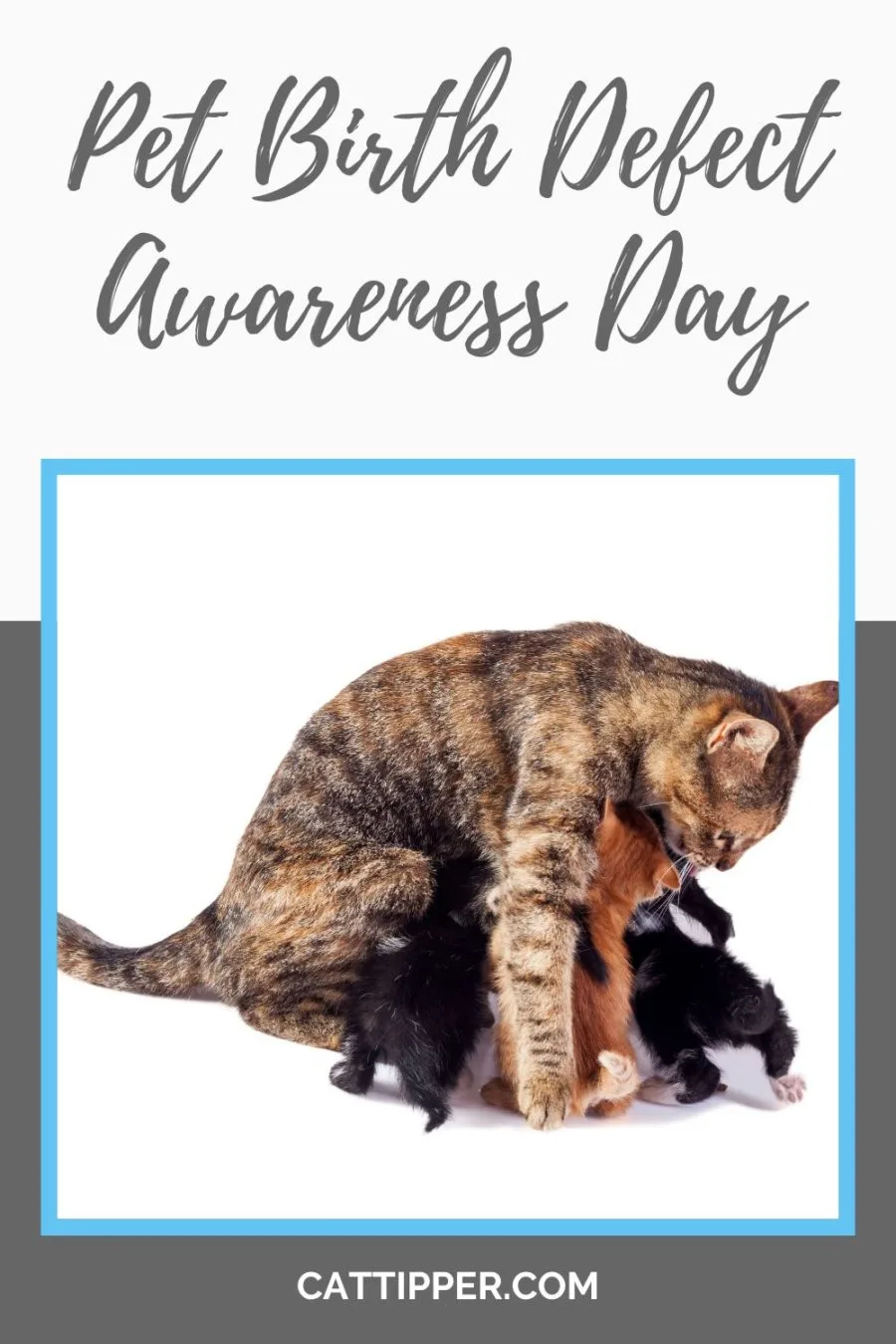Pet Birth Defect Awareness Day has been designated as a time to create a positive environment for pets born with disabilities.

When is Pet Birth Defect Awareness Day?
Pet Birth Defect Awareness Day is observed every year on September 13.
Established by MBJungle Foundation, which has chosen the mythical Chinese protector lioness ShiShi as its symbol, the foundation and the pet holiday strive to raise awareness of pets challenged by physical and mental issues.
Although we do strive to bring awareness to the needs of special needs pets, our main focus is on prevention. We are committed to understanding the factors that lead to pet birth defects and mental illness and are working to identify strategies to reduce and also to prevent secondary disabilities. We would like to encourage professionals to develop a pet birth defect registry with standards that would establish core requirements for effective surveillance efforts and promote uniformity across state and regional registries. We would also like to target and support the pets and families affected by pet birth defects and mental illness.
MBJungle Foundation
The foundation also works to educate the public about ways that people have caused health problems for our four-legged friends through puppy mills, harmful toxins, medications not meant for pregnant animals, and more.
What are Common Cat Birth Defects?
Cats, like any other species, can be born with a range of congenital anomalies or birth defects. These defects can result from genetic factors, inbreeding, maternal health and nutrition, exposure to toxins during pregnancy, or other unknown causes. Here’s a list of some common and uncommon birth defects in cats:
- Cleft Palate or Cleft Lip: This is a split or opening in the mouth roof or lip, and can range from a small gap to a large split. It can interfere with feeding in kittens and may require surgical correction.
- Polydactylism: Cats with this condition have more toes than normal. It’s a relatively benign condition and these cats are sometimes referred to as “Hemingway cats” because the writer Ernest Hemingway was known to have many polydactyl cats at his home.
- Flat-Chested Kitten Syndrome (FCKS): Kittens with this condition have a flattened ribcage. It can range from mild to severe, and while some kittens outgrow it, others may have lifelong respiratory issues.
- Tail Deformities: Some cats are born with short tails, kinked tails, or no tail at all. These can be breed-specific characteristics (like the Manx cat), but they can also be random birth defects.
- Limb Deformities: These include missing limbs or parts of limbs, or limbs that are fused together.
- Spina Bifida: This is a neural tube defect where there’s an incomplete closing of the backbone and membranes around the spinal cord. Cats with this condition may have trouble with mobility and bowel or bladder control.
- Cardiac Abnormalities: Heart defects can range from minor to life-threatening. They may require medication, surgery, or special care.
- Atresia Ani: This is a congenital absence or closure of the anal opening. It requires surgical intervention for the kitten to survive.
- Hernias: Umbilical and inguinal hernias are where a portion of the intestine protrudes through a weak spot in the abdominal wall. They can be congenital or result from trauma.
- Eye and Ear Abnormalities: These can include missing or underdeveloped eyes (anophthalmia or microphthalmia) and ear deformities or absence of ear canals.
- Chromosomal Anomalies: Just like in humans, cats can be born with the wrong number of chromosomes, leading to a range of health and developmental problems. One such condition in cats is called Klinefelter’s syndrome, where male cats (usually sterile) have an extra X chromosome, making their chromosome pattern XXY.
It’s essential to consult with a veterinarian if you suspect a kitten has a birth defect. Some conditions might not be immediately life-threatening and can be managed with proper care and attention. Others might require surgical intervention or specialized care to ensure the best quality of life for the cat.
My Personal Experience: Toulouse
One in a litter of a stray cat’s kittens, my late furry family member Toulouse went through life with a gangly gait that may have been caused by reasons ranging from inbreeding to his mother’s poor diet prior to finding her way to my house.
Happy memories of my sweet baby boy came flooding back when I sat down to write about this special pet holiday.
Undeterred by the constraints of his unique stride, Toulouse met each day head on with a sideways swagger that earned him the nickname “The Duke” after John Wayne’s famous footfall.
Proving that companion animals don’t have to be ‘perfect’ in order to be the perfect companion, Toulouse brought not only 14 years of joy to my life, he also opened my eyes to the challenges that some of our four-legged friends face from the moment they arrive in the world.
More Cat Holidays
Along with Pet Birth Defect Awareness Day, CatTipper features many other cat health awareness days including:
National Heartworm Awareness Month
National Take Your Cat to the Vet Day
Pin it to Remember

- Tyler Bass Fans Donate to Cat Adoption Group - January 24, 2024
- Saint Gertrude of Nivelles, Patron Saint of Cats - January 19, 2024
- Offensive Tackle Daniel Faalele’s Defensive Play for Animal Rights - December 27, 2023
